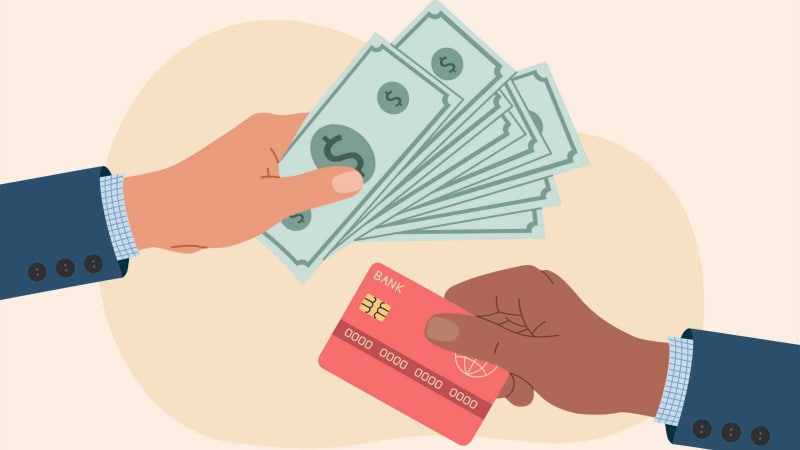Helping your kids start off with credit

Putting your kids on the path to building healthy credit
Learning to be a responsible credit user starts at home. Your kids might not be old enough to get a loan or credit card, but they can start taking cues from you early in life.
You can start teaching your kids about managing money and using credit at a young age. Once they're ready, you might decide to open a credit card for them. Here are some tips to get you started.
Teaching your kids about credit
There's no perfect time to educate your kids about credit, but experts recommend starting well before they get their first credit card. You might want to think about talking to them about credit when they begin showing an interest in money and buying things.
The depth of your conversation may depend on your child's age and maturity, but here are some topics you might want to cover:
- What credit is and why it matters: Explain that it's not always practical to pay for everything with cash. Talk about the different types of credit, like loans and credit cards.
- How credit works: Give examples of how you've used credit and let them know how important it is to pay back what you borrow on time. Discuss what it means to carry a balance and how interest rates work.
- How to use credit responsibly: Explain how missing payments or spending more than you can afford to pay back can have a negative impact on credit.
- How to get credit and build it: Show your kids how to apply for a credit card. Teach them how using it responsibly can help them access more credit in the future.
- Why their credit score is important: Explain what a credit score is, how lenders use it, and how the decisions your child might make can determine whether their credit score rises or falls.
- How to get and read a credit report: Show them a copy of your credit report. Explain how it works and how lenders, landlords or employers may use it to decide if they want to work with you.
- How to stay safe when using credit: Advise that credit cards should always be kept in a safe place and talk about what happens if a card is lost or stolen. Let them know why it's important to check your credit report regularly to identify any potential fraud.
Teaching your kids about credit might be one of the most valuable things you'll do. We have tools available to help you as you have these conversations with your children. If your child is 18 or older, they can sign up for Chase Credit Journey® and explore the many resources it has to offer.
Helping your kids build credit
Once your kids seem comfortable with the idea of credit and how to use it responsibly, you can help them build their credit. Here are a few options to consider:
- Add your child as an authorized user on your account: Set some ground rules, like what purchases they're allowed to make or how they're going to contribute to paying the bill.
- Cosign for a credit card: If your child is under age 21, you can co-sign for a credit card. Just remind them that you're on the hook if they don't pay. So, make sure to set expectations and show them how to make timely payments.
- Have your kids apply for federal student loans, if necessary: Student loans can be a good way for college-bound kids to build credit. The interest rates on federal loans are usually lower than private loans. Plus, federal loans typically come with more options when it comes to payment and forgiveness.
- Help them open a student card: Some credit card companies offer cards specifically for college kids. Highlight why it's important to pay balances on time and the potential negative consequences if a payment is missed. To get approved, they might need to show some proof of income or at least a short credit history. Please note that not all lenders offer student cards, including Chase, so always check with your lender before getting ready to apply.
Remind them that's it's important to manage their credit responsibly. Encourage them to set payment reminders and calendar alerts to check in on their credit score at least every few months. Go over their billing statements together to help them understand how spending can add up.
Finally, remember that your kids pick up on what they see. If you're managing your credit well, you're more likely to pass those habits on to them.
Key takeaways
- The right time to teach kids about credit varies from family to family but it may be a good idea to start before they get their first credit card.
- Teach your kids how to check their credit score, why a credit report and score are important and review the factors that can impact their credit.
- Once your child is ready to build credit, help them apply for a student loan or credit card and continue reinforcing the concept of responsible credit use.
- Educate your kids about managing their credit responsibly by modeling it in your own life.



